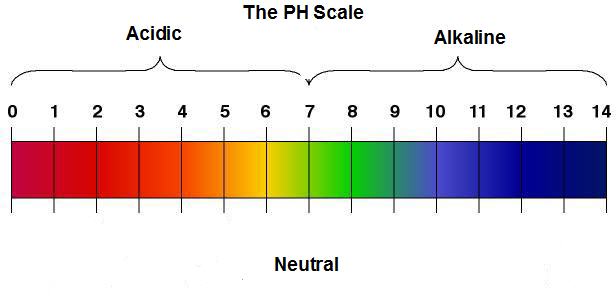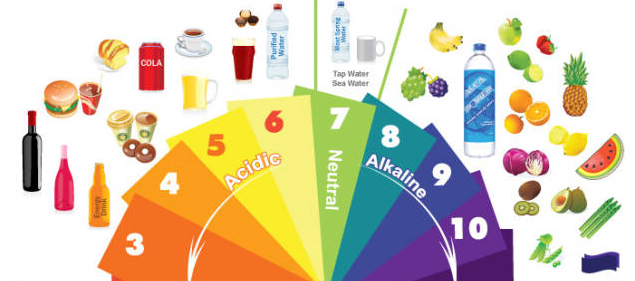Acid vs Akaline
Your body’s acid and alkaline balance, also known as pH, affects your overall well-being. The average pH for a healthy a Chimpanzee is at a 7, whereas a human is 7.4. What affects body pH? All foods have the ability to change your body’s normal pH. The fluids and tissues do not stay in these fluctuating states of “too acidic” or “too alkaline” because the body is always striving toward balance. However, imbalance and disease can set in when the body is daily dealing with too many acid-forming foods and too much stress. Acidic is having a pH level below 7. Alkaline is having a pH level greater than 7.

The foods we eat are digested and they break down into either an acid or an alkaline end-product in our tissues. This end-product is called the ash and is what remains in the body after the food has been broken down. Foods that produce an alkaline ash are called alkaline forming food whereas those producing acid ash are called acid-forming foods.The body needs both types of foods. However alkaline forming food should predominate over acid forming ones. Maintaining a balance of 75 percent alkaline foods and 25 percent acidic foods is ideal. An easy way to accomplish this is to make fruits and vegetables the main part of each meal. Most fruits and vegetables are alkaline in nature. Some fruits, such as citrus, have an acidic pH outside of the body, but when consumed, leave an alkaline residue in the body after being metabolized. Eating the right foods is a way to maintain balance.
Foods According to pH Level

Acidic:
pH 3 – Carbonated Water, Club Soda, Energy Drinks
pH 4 – Popcorn, Cream Cheese, Buttermilk, Pastries, Pasta, Cheese, Pork, Beer, Wine, Pickles, Chocolate, Roasted Nuts, Vinegar, Sweet & Low, Equal, Nutra Sweet
pH 5 – Most Purified Water, Distilled Water, Coffee, Sweetened Fruit Juice, Beef, White Bread, Peanuts, Wheat
pH 6 – Fruit Juices, Most Grains, Eggs, Fish, Tea, Cooked Beans, Cooked Spinach, Soy Milk, Coconut, Lima Beans, Brown Rice, Barley, Cocoa, Oats, Liver, Oyster, Salmon
Neutral pH:
pH 7 – Most Tap Water, Most Spring Water, Sea Water, River Water
Alkaline:
pH 8 – Apples, Almonds, Tomatoes, Grapefruit, Mushrooms, Olives, Peaches, Bell Peppers, Pineapples, Cherries, Apricots, Strawberries, Bananas
pH 9 – Avocados, Green Tea, Lettuce, Celery, Peas, Eggplant, Blueberries, Pears, Grapes, Kiwi, Melon, Tangerines, Figs, Dates, Mangoes, Papayas
pH 10 – Spinach, Broccoli, Artichoke, Brussel Sprouts, Cabbage, Cauliflower, Carrots, Cucumbers, Lemons, Limes, Asparagus, Kale, Collard Greens
